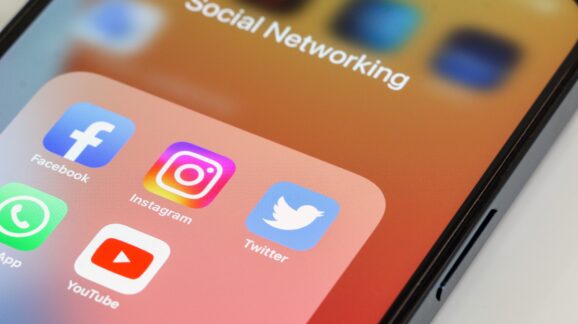A “Coordinated Campaign”
This spring, the Supreme Court will review the federal government’s alleged efforts to pressure social media companies to censor protected speech.
The Covid-19 pandemic revealed a split between those who believe that the government has broad authority to control every aspect of the economy and society in the name of the public good, and those who believe that such intrusions are beyond the government’s constitutional authority. A pending case gives the U.S. Supreme Court the opportunity to decide whether the purported need to protect public health can trump the First Amendment.
The Court granted certiorari to hear an appeal of the Fifth Circuit Court of Appeals’ decision in Murthy v. Missouri (formerly Missouri v. Biden), which prohibited federal health and other officials from communicating with social media platforms about removing posts that the government identifies as false or misleading. The appellate court found evidence of “a coordinated campaign” of unprecedented “magnitude orchestrated by federal officials” to suppress disfavored, generally conservative, points of view on social media. It held that “the district court was correct in its assessment—‘unrelenting pressure’ from certain government officials likely ‘had the intended result of suppressing millions of protected free speech postings by American citizens.’”
The alleged censorship reviewed by the court covered several topics but mostly related to supposed Covid-19 “misinformation”—including opposition to Covid masking and lockdowns, the lab-leak theory of Covid’s origin, and questioning the need for universal Covid vaccination.
Two of the private plaintiffs, infectious-disease epidemiologists Jay Bhattacharya of Stanford and Martin Kulldorff of Harvard, were among the suit’s alleged victims. Bhattacharya and Kulldorff coauthored the Great Barrington Declaration, which expressed concern about the damaging physical- and mental-health impacts of Covid lockdowns and proposed the alternative approach of “focused protection” of vulnerable groups. In court, the two scientists provided convincing evidence that Francis Collins and Anthony Fauci of the National Institutes of Health conspired to organize, as Collins advocated in an email to Fauci, “a quick and devastating published take down” of the GBD and its authors, and that other NIH personnel directly contacted social media companies, resulting in the censorship of the GBD and its authors.
Read the full article on City Journal.
